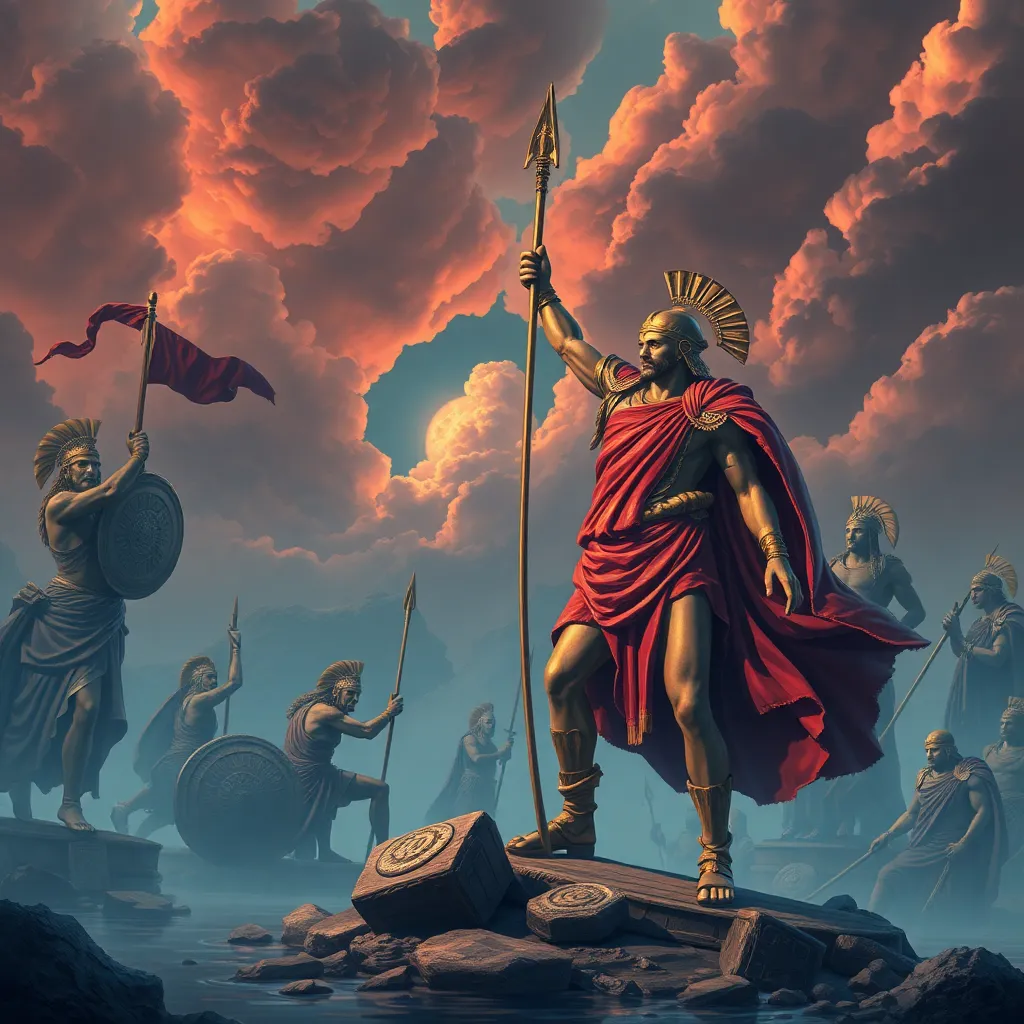The Trojan War: Myths of Justice and Retribution in Ancient Greece
I. Introduction
The Trojan War, a pivotal event in Greek mythology, has captivated the imaginations of countless generations. Its tales of heroism, tragedy, and divine intervention provide profound insights into the human condition, particularly the themes of justice and retribution. This article aims to explore these themes within the context of the Trojan War, examining how they manifest through the actions of both mortals and gods.
II. Historical Context of the Trojan War
The mythological narrative of the Trojan War is rich and complex, encompassing various stories that intertwine the fates of gods and men. The war, sparked by the abduction of Helen, the queen of Sparta, by Paris of Troy, sees a formidable coalition of Greek forces led by Agamemnon seek to reclaim her.
- Key Players: The war features a vast array of characters, including renowned heroes like Achilles and Hector, as well as influential gods such as Zeus, Athena, and Hera.
- Significance: The Trojan War serves as a cultural touchstone in ancient Greece, symbolizing the struggle between fate and free will, and the moral complexities of justice.
III. Justice and Retribution in Greek Mythology
In ancient Greek culture, justice (dike) and retribution (nemesis) are crucial concepts that govern both divine and human actions. Justice is often portrayed as a moral order that upholds balance, while retribution embodies the consequences of wrongdoing.
- The Furies: Divine figures who personify vengeance, the Furies pursue wrongdoers relentlessly, ensuring that justice is served.
- Moral Implications: The tension between vengeance and justice is a recurring theme, raising questions about the righteousness of revenge and the potential for redemption.
IV. The Role of the Gods in the Trojan War
The gods play a significant role in the Trojan War, often intervening in human affairs to promote their interests and settle scores among themselves. This divine meddling complicates the moral landscape of the war.
- Divine Intervention: The gods frequently alter the course of events, as seen when Athena aids the Greeks or when Aphrodite protects Paris.
- Godly Conflicts: The rivalry between the goddesses Hera, Athena, and Aphrodite, which instigates the war, highlights the gods’ personal vendettas affecting mortal lives.
V. Key Figures and Their Pursuit of Justice
Several key figures in the Trojan War exemplify the pursuit of justice through their actions, each embodying different aspects of vengeance and honor.
- Achilles: Driven by personal vengeance after the death of his friend Patroclus, Achilles’ quest for retribution leads to tragic consequences, showcasing the destructive nature of unchecked wrath.
- Agamemnon: As the leader of the Greek forces, Agamemnon’s decisions reflect the complexities of leadership and the quest for honor, ultimately resulting in a cycle of retribution.
- Hector: The noble defender of Troy, Hector’s commitment to his city and family illustrates the concept of honorable retribution, contrasting with Achilles’ more selfish motivations.
VI. Consequences of Retribution in the War
The pursuit of justice and retribution during the Trojan War leads to a series of tragic outcomes, emphasizing the cyclical nature of violence.
- Cyclical Violence: The actions taken by the heroes and gods often lead to further bloodshed, perpetuating a cycle of revenge.
- Tragic Outcomes: Families are torn apart, with the deaths of key figures like Achilles and Hector leaving a lasting impact on both Greek and Trojan societies.
- Societal Impact: The war’s consequences extend beyond individual fates, shaping the cultural narratives surrounding honor and justice in ancient Greek society.
VII. Legacy of the Trojan War in Literature and Art
The themes of justice and retribution continue to resonate through literature and art, influencing countless works across the ages.
- Depictions: From Homer’s “Iliad” to modern interpretations, the complexity of justice and retribution is a central theme.
- Significant Works: Various plays, poems, and artworks explore these themes, including Aeschylus’s “Oresteia” and Virgil’s “Aeneid.”
- Modern Relevance: The legacy of the Trojan War serves as a lens through which contemporary issues of justice and morality can be examined.
VIII. Conclusion
In summary, the Trojan War is a rich tapestry of stories that intertwine themes of justice and retribution, revealing the complexities of human nature and divine influence. The enduring significance of these themes invites reflection on the moral dilemmas faced by individuals and societies alike.
The legacy of the Trojan War continues to inspire and provoke thought in contemporary discourse, reminding us of the timeless nature of justice and the consequences of revenge.




